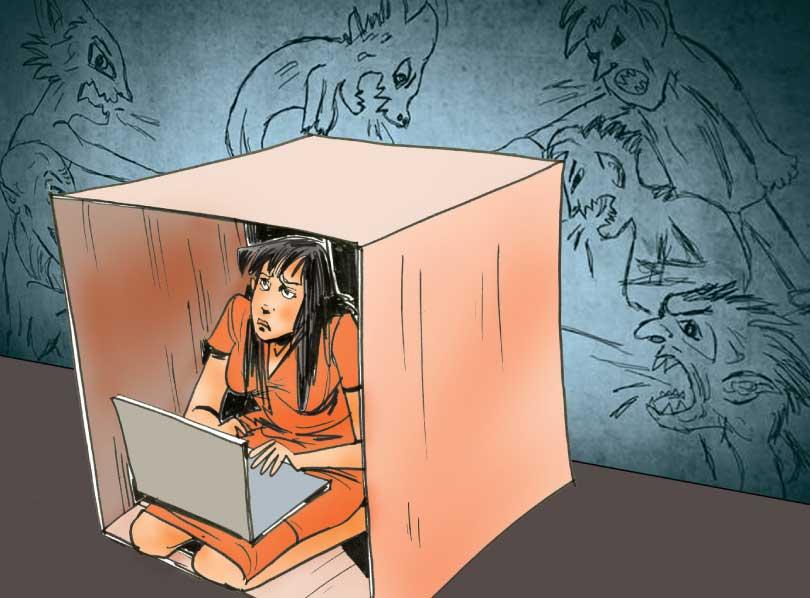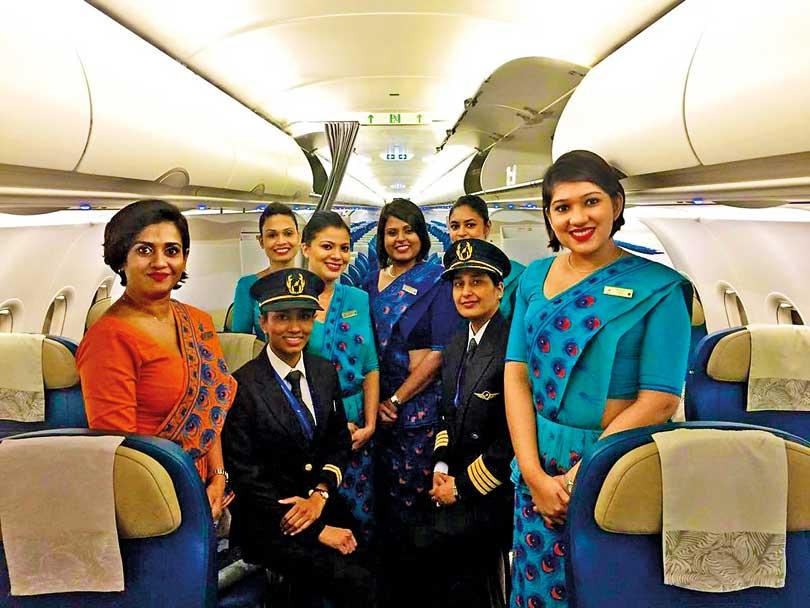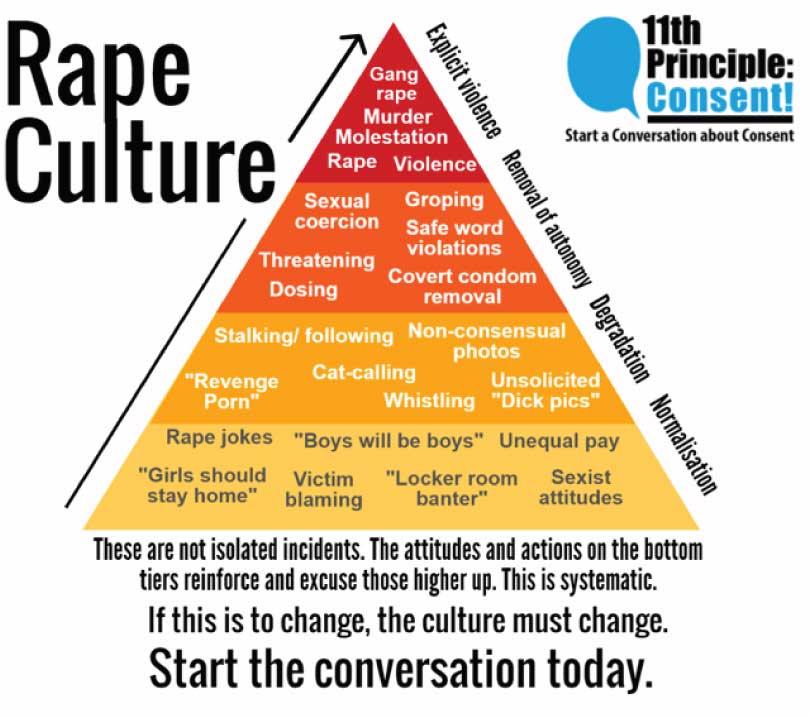13 Mar 2019 - {{hitsCtrl.values.hits}}

 The forward journey of a woman is often hampered by culture, stereotypes and the everyday sexism of men as well as women. The recent celebration of International Women’s Day, which saw our national carrier, Sri Lankan Airlines, fly to Singapore in an all female crew flight, was sadly subjected to sexist remarks by certain men on social media.
The forward journey of a woman is often hampered by culture, stereotypes and the everyday sexism of men as well as women. The recent celebration of International Women’s Day, which saw our national carrier, Sri Lankan Airlines, fly to Singapore in an all female crew flight, was sadly subjected to sexist remarks by certain men on social media.
The ability of a female only crew to handle and pilot an aircraft was questioned by the sardonic comments. One commentator stated that men “are adept in handling machinery and equipment compared to females”, that men can make decisions at “crucial time(s)” and this was all “by nature.” Comments implied a female maneuvered aircraft is incapable of flying successfully.
The crux of the issue here is that certain men do not view women to be of equal capability and undermine the effort of women to the point of ridicule. Why is it that stereotypes of the role of a woman and a man are still held on to despite glaring evidence of the potential of women? Just recently a 12-year-old girl of Sri Lankan origin was crowned Britain’s Brightest child in a show titled ‘Child Genius’ in England. She is said to have an IQ more than that of Albert Einstein. While, women have shown great progress, be it in academia, athletes and in the professional sphere, their performances are often undermined.
A woman’s journey forward can be barred and marred by such regressive views and attitudes. Although both men and women experience cyber violence, it is women who largely face sexism online. Sexism online can be in the form of trolling, offensive references to women’s bodies and appearance, revenge porn, rape threats, discriminatory and stereotyped views, etc. Elsewhere comments made on posts by gossip sites and other online fora show the level of misogynism and sexism that prevails in our society where women are objectified sexually and referred to in derogatory and lewd language, for instance, by comparing them to prostitutes.
The objectification and sexualisation of women and girls online is in fact a reflection of the “offline world” of gender norms and the stereotyped, traditionally accepted roles for men and women. Studies shows that such societal roles and behaviours of men, contribute to the condoning of violence against women and encourage disrespectful male peer relations towards women in both online and offline environments.


Gender Activist, Sharanya Sekaram said that online sexism was a manifestation of online gender based violence and harassment. “Online sexism is also a manifestation of what’s happening on the street, bedrooms, and boardrooms. Online sexism is no different to sexism in general.”
The rape culture pyramid is an image with layers depicting how the rape culture builds from attitudes and words to violent behaviour such as rape. The bottom layer of it includes sexist attitudes, rape jokes and banter. “People often say that these sexist remarks are just jokes and that boys will be boys, that it’s just banter and you shouldn’t worry. But banter normalises this kind of attitude,” stressed Sekaram.
SEXISM, A RESULT OF WHAT WE ARE TAUGHT
Asked why sexism prevails, she said that it was not because men who made such comments were “sick in the head”. “These men are the average. Sexism is a result of what we are taught. We are not taught to look at people as human beings, but rather as men and women. It all roots down to the pink and blue culture. Women who rise are the exception. They are not the norm and we are taught that. Look at advertisements, our civic books, cartoons, movies, and how the media portrays family. Women are looked at primarily in their role as mothers. I’d like to see a business interview where the man is asked how he balances work, home and children. So these men are products of a system we are creating. So when there is something different to the norm it becomes difficult to accept it,” she said.
She further raised concern about how such sexist remarks affect young children especially those between three and seven years. “Ideas are formed and ingrained in little children between the ages of 3 and 7. What are we teaching young boys and girls when they see these things?”
 ONLINE DISINHIBITION EFFECT
ONLINE DISINHIBITION EFFECTThe online disinhibition effect is the lack of restraint of people when they communicate online compared to when communicating in person. “Some unwise inhibited people may find it easier to be direct and “brave” online rather than in real life in front of real persons,” said Consultant Psychiatrist Dr. Mahesh Rajasuriya when asked about online sexism.
Meanwhile, the Director of Grassrooted Trust, Paba Deshapriya, said that it was attitudes, perceptions, patriarchy, a sense of entitlement and impunity for men that results in sexism. “Online sexism is unique in terms of anonymity. You can’t trace who said something. This is great for freedom of expression. But we need to know how to strike that balance and regulate it,” she said.
She further pointed at how most social media platforms including facebook did not have a sufficient number of Sinhala speaking and Tamil speaking staff to identify sexist comments and remove them. “Their community standards are great, but it is ridiculously difficult to takedown comments, posts and pages written in Sinhala or Tamil. This is a widespread issue and no community is immune to it,” she said.

“We have studied about how Sri Lankans watch pornographic material and the interesting finding is that “girlfriend teen homemade pornography” is the highest watched category. So who are these school going teenage girlfriends in Sri Lanka who end up in pornographic sites? This stems from relationship break ups and revenge porn,” she said adding that online sexism can be observed when relationships breakdown and the woman is called a “whore” and similar meaning words online.
Both Deshapriya and Sekaram said that the situation can be countered mainly through education. “The latest International Labour Organization data shows that education alone is unlikely to close the gender gap because the type of education we provide does not transform into changing attitudes about women. We need an education that changes people’s attitudes and leads to behavioural change,” said Deshapriya. Meanwhile, Sekaram highlighted that education between the age group between 3 and 7 is crucial. “We need to teach values of respect, human dignity, empathy, sympathy, consent at this crucial age.”

 Lawyer and activist Aritha Wickramasinghe said that there were no laws to regulate online sexism. “Only if the posts and comments amount to harassment can some action be taken. But otherwise, people are free to show their bigotry and make fools of themselves as long as it doesn’t amount to hate speech.” He, however, pointed out that media and social media can hold such views accountable.
Lawyer and activist Aritha Wickramasinghe said that there were no laws to regulate online sexism. “Only if the posts and comments amount to harassment can some action be taken. But otherwise, people are free to show their bigotry and make fools of themselves as long as it doesn’t amount to hate speech.” He, however, pointed out that media and social media can hold such views accountable.
“Men who make such comments are men who are insecure. And if you look at their profiles and what they have achieved in life, you will see that they have often achieved far less than the women they are ridiculing.
Successful women, especially women who are more successful than men, bruise the egos of men who have been brought up conditioned to think that men lead and control everything,” he added.

“I have had derogatory words thrown at me both in English and Sinhala. The abuse doesn’t stop at the online interaction which is public. Some have sent me hate messages in filth on messenger following these online conversations. None of these interactions have been constructive,” said Eesha Coswatte, a law graduate.
When the constitutional crisis was in progress, I posted an explanation as to why it was unconstitutional.
“When the constitutional crisis was in progress, I posted an explanation as to why it was unconstitutional. The post was being shared widely and I had people who told me that I just wanted attention. The fact that I was in the legal field who had passed Constitutional law didn’t matter because I was a woman,” she said, adding that it was ignorance and narrowmindedness that resulted in sexism.

A third year engineering student, Amanda Sandaminie said that she has met many men on facebook who thought her views did not matter just because she was a female. “Once I was told I am wrong because women do not understand anything and this man kept on arguing that women should ‘know their place.”

As part of the campaign to combat sexual harassment on public transport the UNFPA launched a campaign which included releasing 16 video stories of women who have faced sexual harassment on public transport. The women who were featured faced online sexism.
“After the UNFPA video was released there were several comments under my video which were very abusive. They targeted my mother and sisters as well. Some men had stalked my profile and were commenting on my photos. Most of them blamed my clothes validating my western way of clothing as reason enough to be harassed. They also said that I was doing all this for fame.” 22-year-old Shiyalni Janarthanan said.
“Initially I did feel a shock at the blatant victim blaming and rape culture perpetuated by such men who want me to be covered head to toe and always travel chaperoned, but later I strongly felt for the women in their lives as I can only imagine all the struggles they must go through on a daily basis by such men who are misogynistic, controlling and sometimes plain abusive,” she added.
After the UNFPA video was released there were several comments under my video which were very abusive
Asked why she thought some men believed that women cannot excel in the professional sphere, she said: “I think deep down they are well aware that given the same opportunity women might excel in traditionally male-dominated fields, but they want to make jokes out of it to hide their own lack of initiative and hide their fragile ego. Some men cannot tolerate the fact that women are excelling as they feel threatened in their careers and personal life as well.”

Renushi Ubeyratne’s story featured by the UNFPA was called “fake.” Other comments included “Go cook dinner” and other sexist comments. Speaking to the Daily Mirror, Ubeyratne said that she was also harassed online by people who were close to her.
She said that online sexism has reached a point where it can no longer be ignored. “I’ve been called ‘dramatic’ and not able to ‘take a joke’ despite the fact that I confront them in the calmest manner possible. Most of them refuse to acknowledge the subtlety behind sexist jokes, humour and insults. Once I point it out to them, I’ve been unfriended/blocked and criticized by boys and men who could not tolerate the fact that a woman put them in their place or confronted them with the truth,” she said.
I’ve come across and/or heard of so many men who feel threatened by intelligent, strong and independent women
“I’ve come across and/or heard of so many men who feel threatened by intelligent, strong and independent women. Having said this, I think that we should also applaud the men who respect, stand up for and advocate equal opportunities for women and men. Happily, men like them exist. We just need the rest to follow their example,” she said.
09 Jan 2025 3 hours ago
09 Jan 2025 5 hours ago
09 Jan 2025 7 hours ago
09 Jan 2025 8 hours ago
09 Jan 2025 8 hours ago